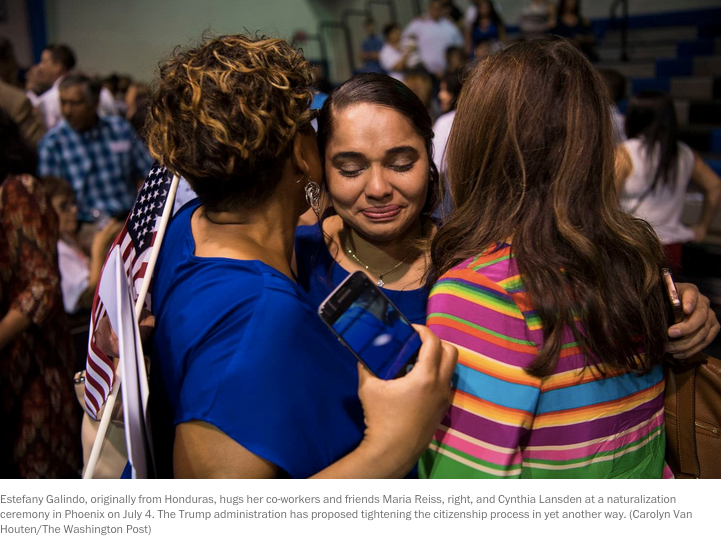The obstacles to gaining citizenship in this country grow higher by the day. Some of these new hurdles are dramatic: The administration has placed severe restrictions on asylum seekers, and the military has been deployed to string concertina wire at the U.S.-Mexico border. Other changes are dry and bureaucratic, but no less potentially devastating. One especially consequential policy shift is the Trump administration’s proposal to modify the “public charge” rule — which it can do without consulting Congress.
The rule was designed to bar people from permanent residency who would be dependent on public support for most of their income. Gaining legal permanent residency (a “green card”) is a critical step before most immigrants can apply for citizenship, and the public-charge rule, whose origins as a federal policy date to 1882, has long been a tool to screen out “undesirable” immigrants from eventually becoming citizens.
Currently, to evaluate whether someone is likely to become a public charge, the government looks at whether an applicant for a green card has used cash-based benefits such as Temporary Assistance for Needy Families (TANF) to support themselves, and at what level, and the Department of Homeland Security can deny a green card application based on the answers. The Trump administration wants to add many more factors to the public-charge determination, including whether the applicants get SNAP (food stamps), Medicaid and Section 8 housing vouchers.




